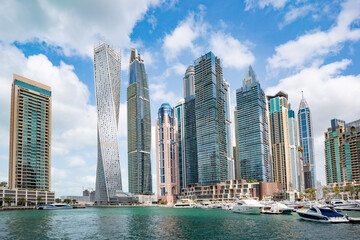The Removal of the UAE from the EU High-Risk Third Countries List: Analysis of Changes
- Background
- Practical Implications of the Removal
- The UAE’s Competitive Advantages for Business Incorporation
In July 2025, the European Parliament adopted a decision to update the list of high-risk third countries with strategic deficiencies in anti-money laundering and counter-terrorist financing regimes. One of the most significant developments was the removal of the United Arab Emirates (UAE) from this list.
Background
In February 2024, the UAE was removed from the Financial Action Task Force (FATF) “grey list”, but the EU review process took more than a year due to ongoing concerns regarding the level of judicial cooperation with EU Member States, including issues related to extradition and mutual legal assistance.
In April 2025, the UAE committed to improving judicial cooperation with EU Member States and enhancing engagement with Eurojust, Europol and the European Public Prosecutor’s Office.
Practical Implications of the Removal
The removal of the obligation to conduct enhanced due diligence on clients from the UAE has led to simplified compliance procedures for EU financial institutions and reduced operational costs.
For businesses, this translates into improved conditions for international transactions between the UAE and the EU, easier access for UAE residents to European financial services, and simplified procedures for opening bank accounts, company registration, and obtaining consulting, audit and legal services.
This is particularly important for entrepreneurs, as company formation in the UAE has now become more attractive in terms of conducting subsequent international business. European banks and financial institutions will no longer regard UAE-based companies as potentially high-risk clients, which significantly simplifies corporate banking services and cross-border payments.
The UAE’s Competitive Advantages for Business Incorporation
The removal of the UAE from the EU high-risk list complements the country’s existing advantages as a business jurisdiction. Entrepreneurs gain access to a stable legal system, well-developed infrastructure, and a strategically advantageous geographic location.
Of particular interest to business owners are the UAE’s free economic zones, which offer 100% foreign ownership, favourable tax treatment, and streamlined registration procedures. Now that additional barriers to working with European partners have been lifted, the investment attractiveness of these zones is significantly enhanced.
For Reference
Current Composition of the EU High-Risk Third Countries List
As of July 2025, the EU list of high-risk third countries includes: Algeria, Angola, Afghanistan, Burkina Faso, Vanuatu, Venezuela, Vietnam, Haiti, Democratic Republic of the Congo, Iran, Yemen, Cameroon, Kenya, North Korea, Côte d'Ivoire, Laos, Lebanon, Mali, Mozambique, Monaco, Myanmar, Namibia, Nepal, Nigeria, Syria, Tanzania, Trinidad and Tobago, South Africa, South Sudan.
Author: Handriko Artem, Miritskaya Anna

